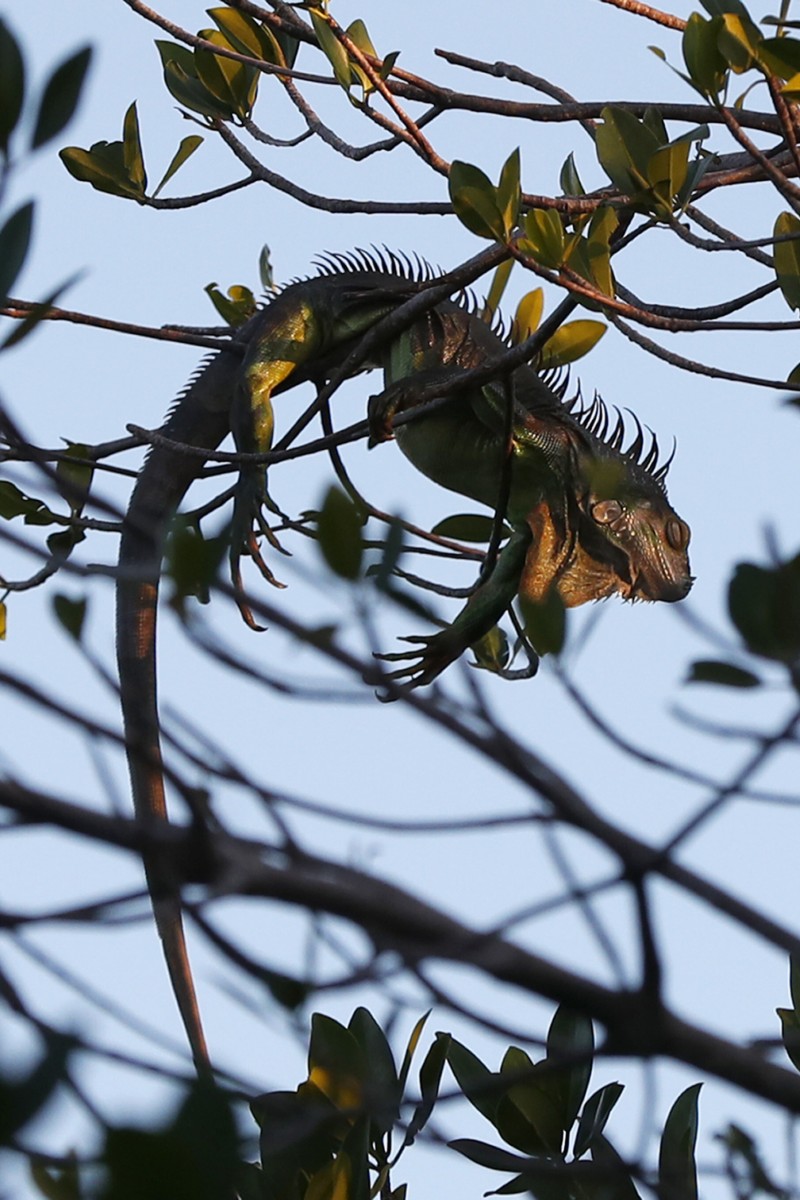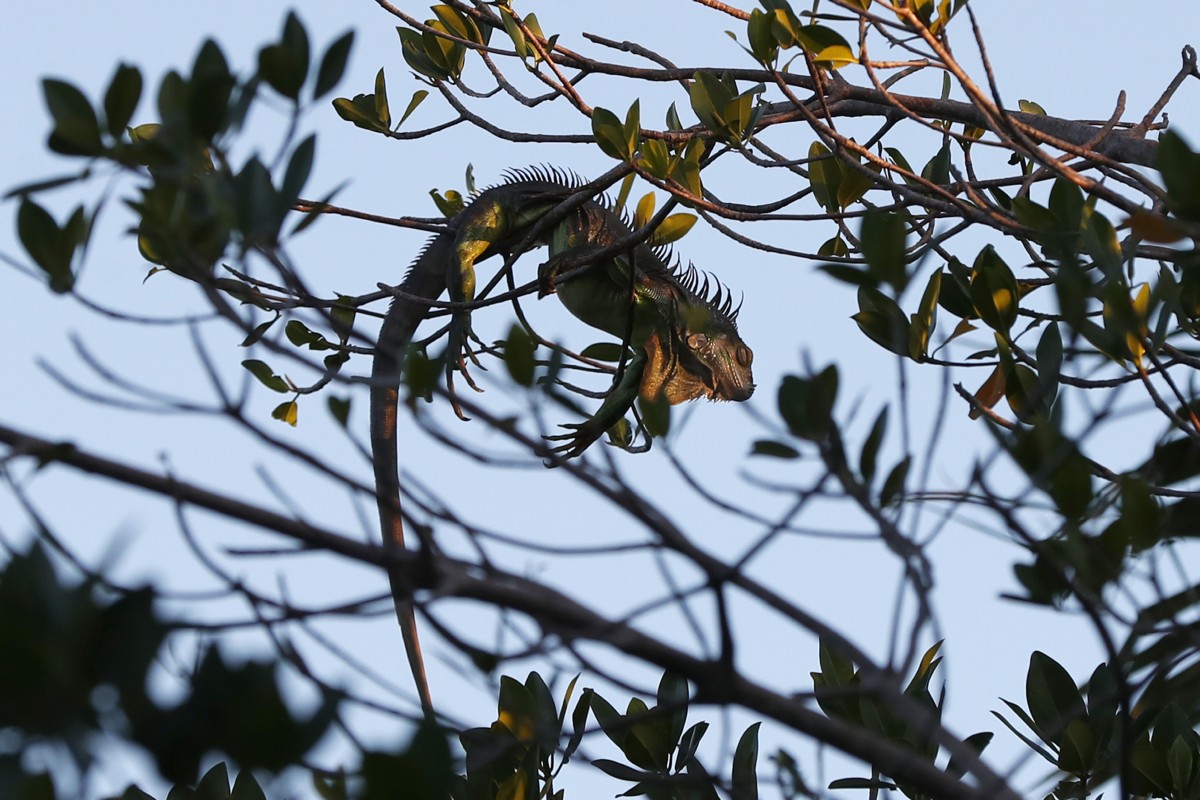
- Since the reptiles are cold blooded, they slow down or become immobile when temperatures drop
- Iguanas are not a native species to Florida and were accidentally brought in cargo ships from warmer places like Central and South America
 An iguana lies draped on a tree limb as it waits for the sunrise in Florida. Photo: AP
An iguana lies draped on a tree limb as it waits for the sunrise in Florida. Photo: APThe US National Weather Service Miami-South Florida warned the public on Sunday that immobilised iguanas could fall out of trees due to unusually cold temperatures across the region.
“Iguanas are cold-blooded. They slow down or become immobile when temps drop into the 40s (4-9 degrees Celsius). They may fall from trees, but they are not dead,” the service said on Twitter.
Temperatures in South Florida reached a low of 25 degrees Fahrenheit (-3.8 Celsius) on Sunday morning, according to the National Weather Service, and high temperatures on Sunday were expected to remain in the upper 50s to low 60s (around 14 to 17 degrees Celsius).
Zoologist Stacey Cohen, a reptile expert at Palm Beach Zoo in Florida, explained the phenomenon.
“Their bodies basically start to shut down and they lose their functions, so they are up in the trees on the branches sleeping and then, because it gets so cold, they lose that ability to hang on and fall out of trees a lot,” Cohen said.
How to avoid catching a cold during the pandemic
Although most of the reptiles will likely survive this period of immobilisation, Cohen said freezing temperatures were a threat to their survival and pointed to a cold snap in 2010 that wiped out a large number of the population.
“Cold is a very, very life-threatening thing for them because they are from parts of Central and South America, close to the equator, where it always stays very warm,” she said.
Green iguanas are not native to Florida, according to the Florida Fish and Wildlife Conservation Commission. They were accidentally introduced as stowaways in cargo ships and are considered an invasive species. They can weigh up to 17 pounds (7.5kg) and measure over five feet (1.5 metres) in length.
These iguanas are not the first animals to suffer from the cold this winter. Hundreds of thousands of farmed fish died from thermal shock in a lagoon in northwestern Greece after a heavy snowstorm crippled the country last week.